One of these things is not like the other. . . .
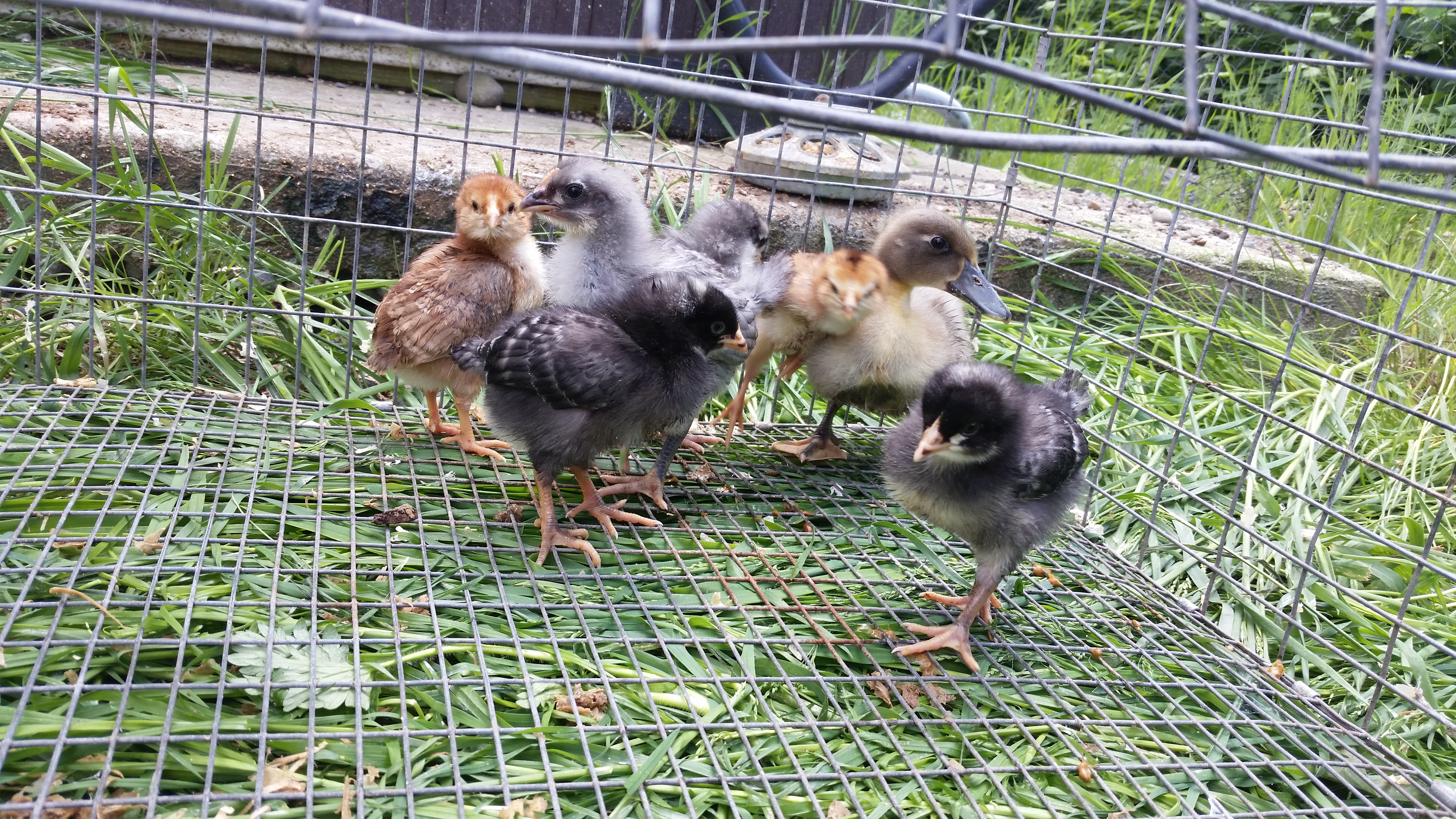
We already had six chicks when we decided to add a duckling to the mix.
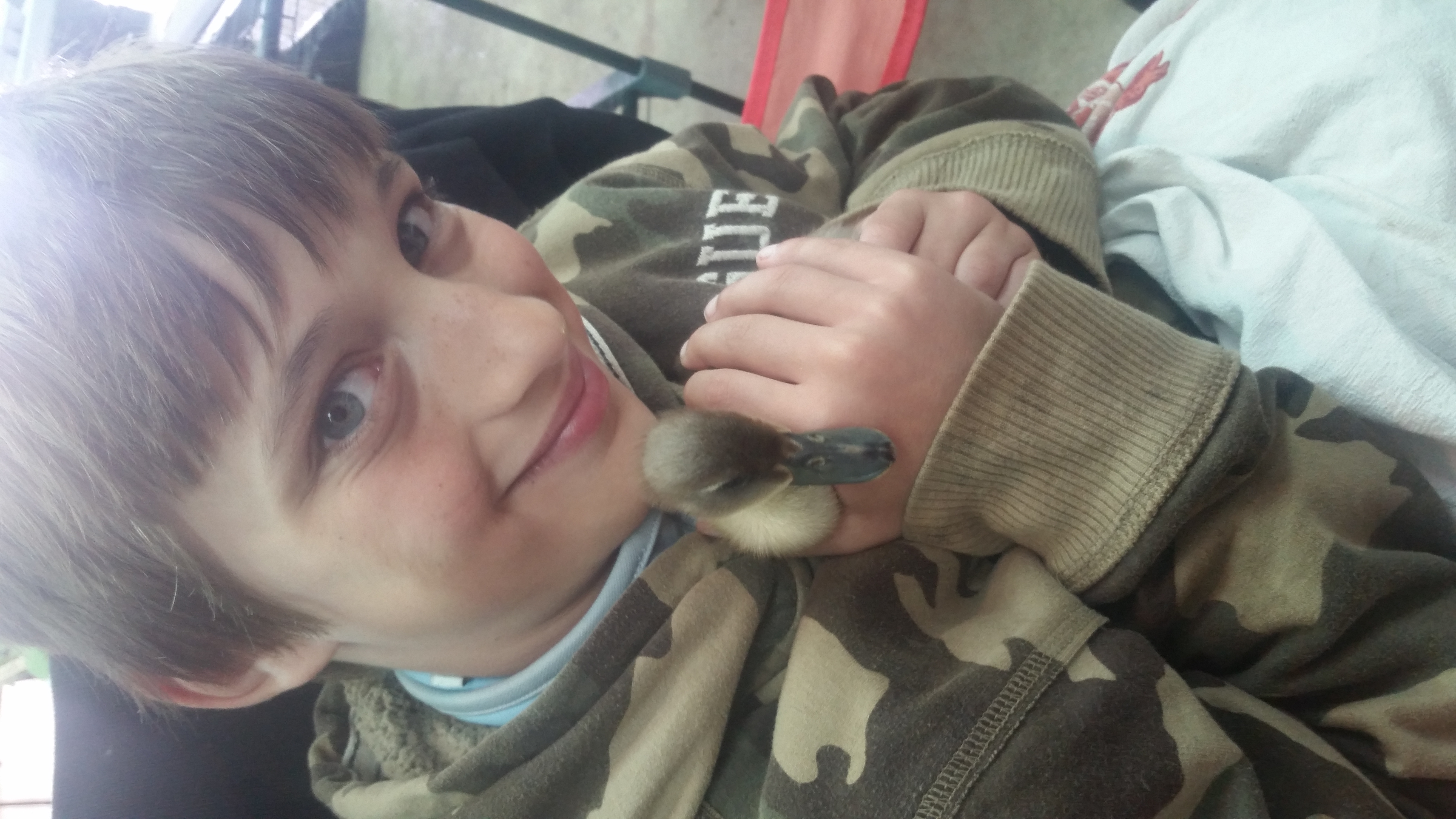
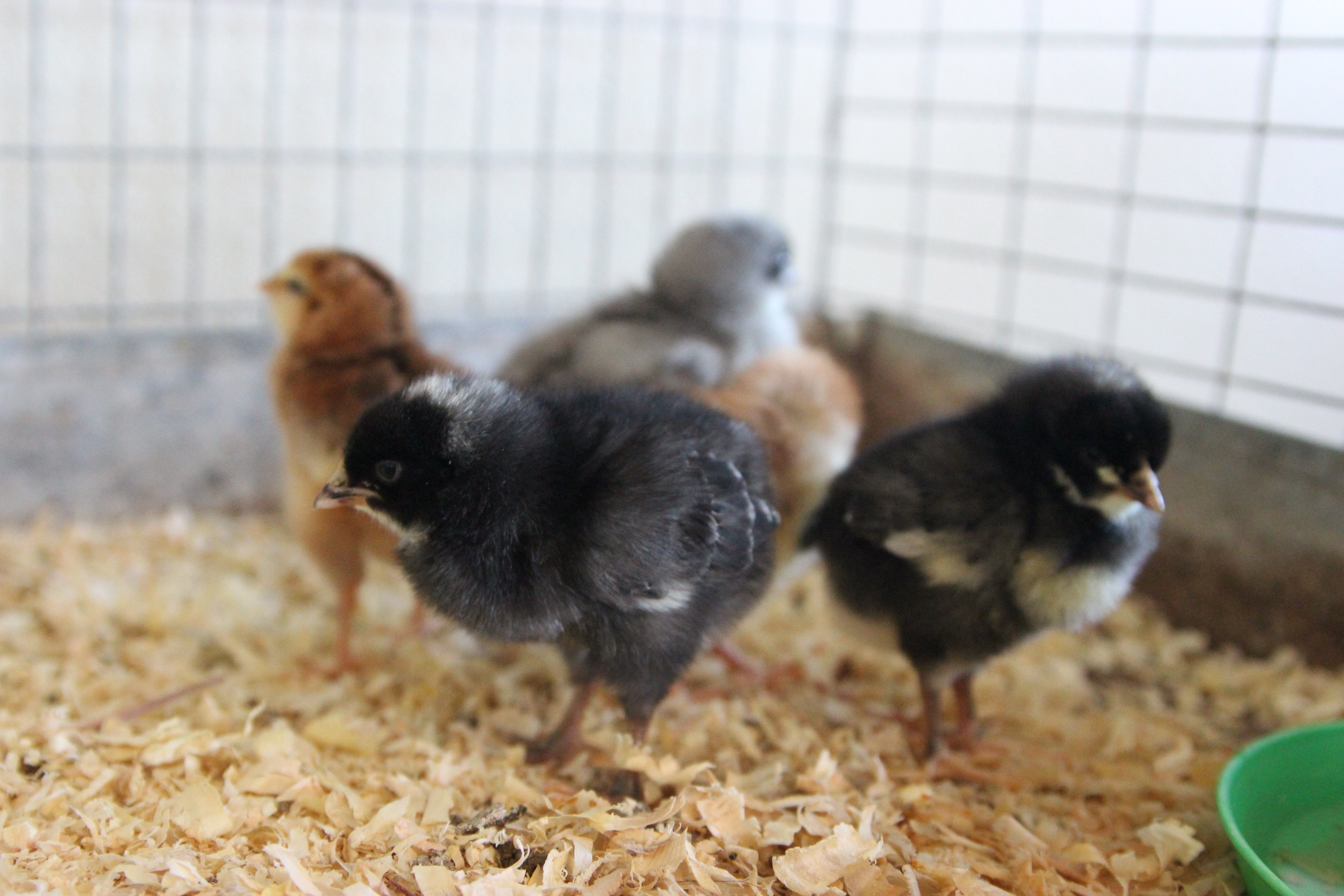
Yes ducks, and chickens can be raised together, but there are some important differences to know.
Ducklings need more water, and will make a big mess.
Ducks have a natural desire to clean themselves in water. With adult ducks, it is important to keep a pond or small pool of water so that the ducks can get in, and clean themselves up. The problem is that if you put water in a pen with chicks, they may drown. In any cage with chicks there should be a shallow, small watering dish that none of the animals can get themselves in. Because of this, if you raise ducklings, and chicks together, the duck should be “given a bath” once a day. An old tote, or sink can even work as long as the duck can get wet, and preen themselves. Ducklings will try and preen themselves from the water dish. This is when they take water up in their bill, and get it up under their feathers. This will make a big mess so you may be constantly be cleaning up after the little duckling in order to keep all of the birds healthy.
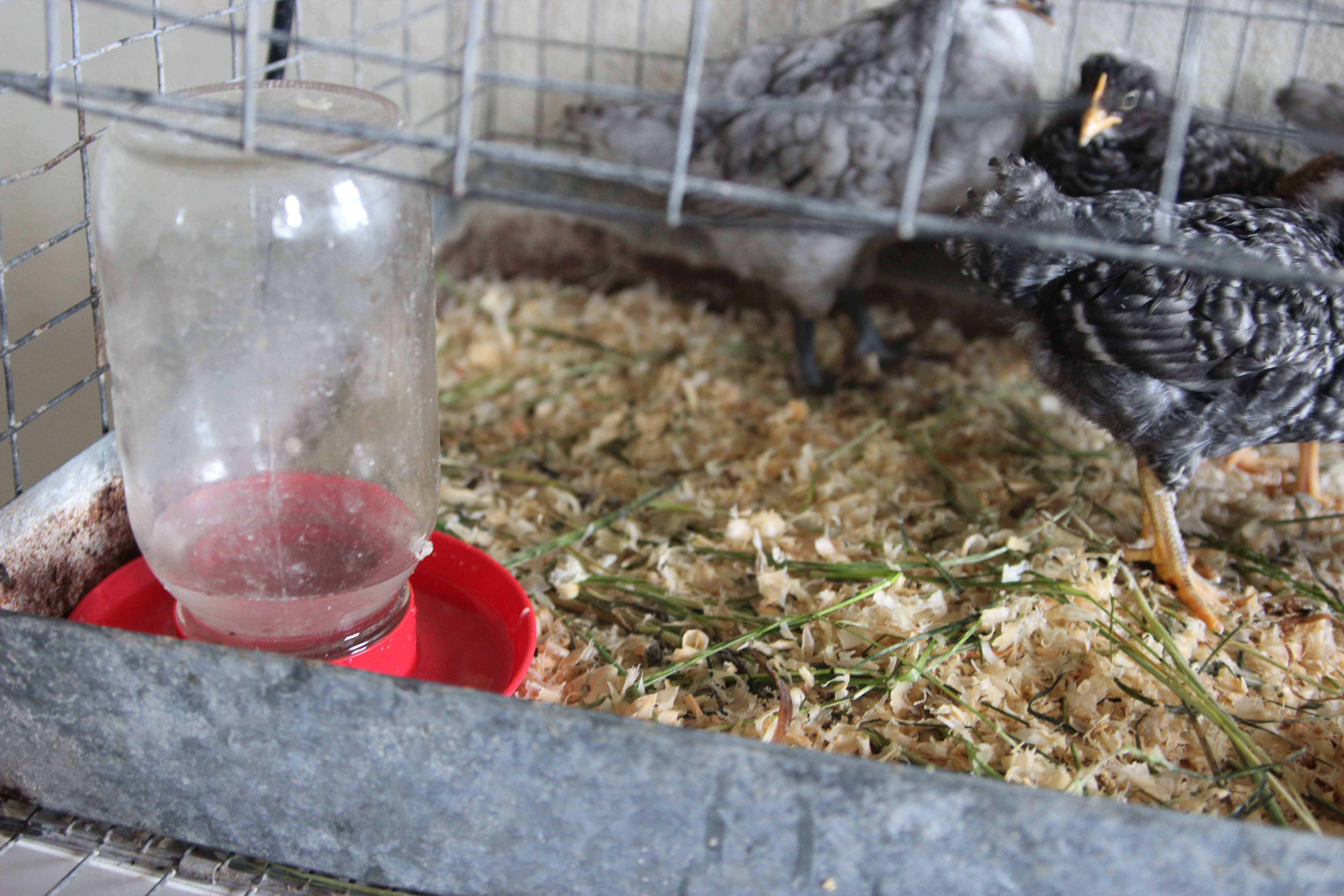
Ducklings need niacin in order for their legs to develop properly.
Niacin can be added to the ducks water. Chicks can have niacin, but do not have as much of a need since they do not grow as fast as ducks do. However, I am not sure if there is such a thing is too much niacin for chicks, or not enough for ducks so our duckling gets some niacin in a bowl of water on the side, or in his or her bath.
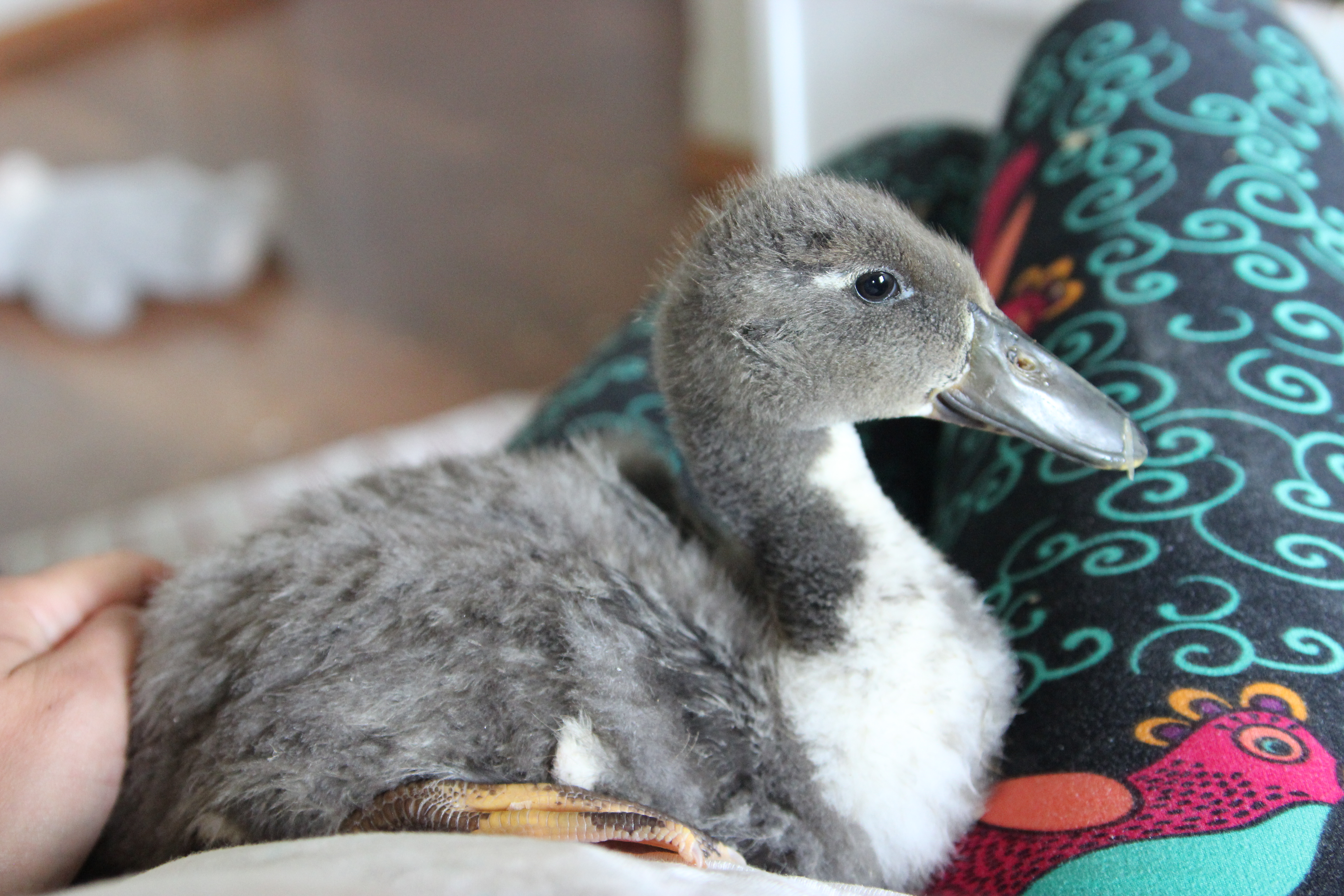
Chicks benefit from medicated feed.
Chicks can be fed medicated, or non medicated grower crumble, however, ducks are not supposed to be given medicated food (according to the internet). What I do is do half, and half, and sometimes do a little feeding separately. The reason that chicks can benefit from medicated feed is that it helps to protect against coccidiosis. When ducks eat, they eat some food, go to water, eat some food, and go to their water. They need to wet their food as they eat it. This makes an even bigger mess so feeding sometimes happens in a tub or cage outside. The only downside to this is that the duckling hates being separated from her little chick friends.
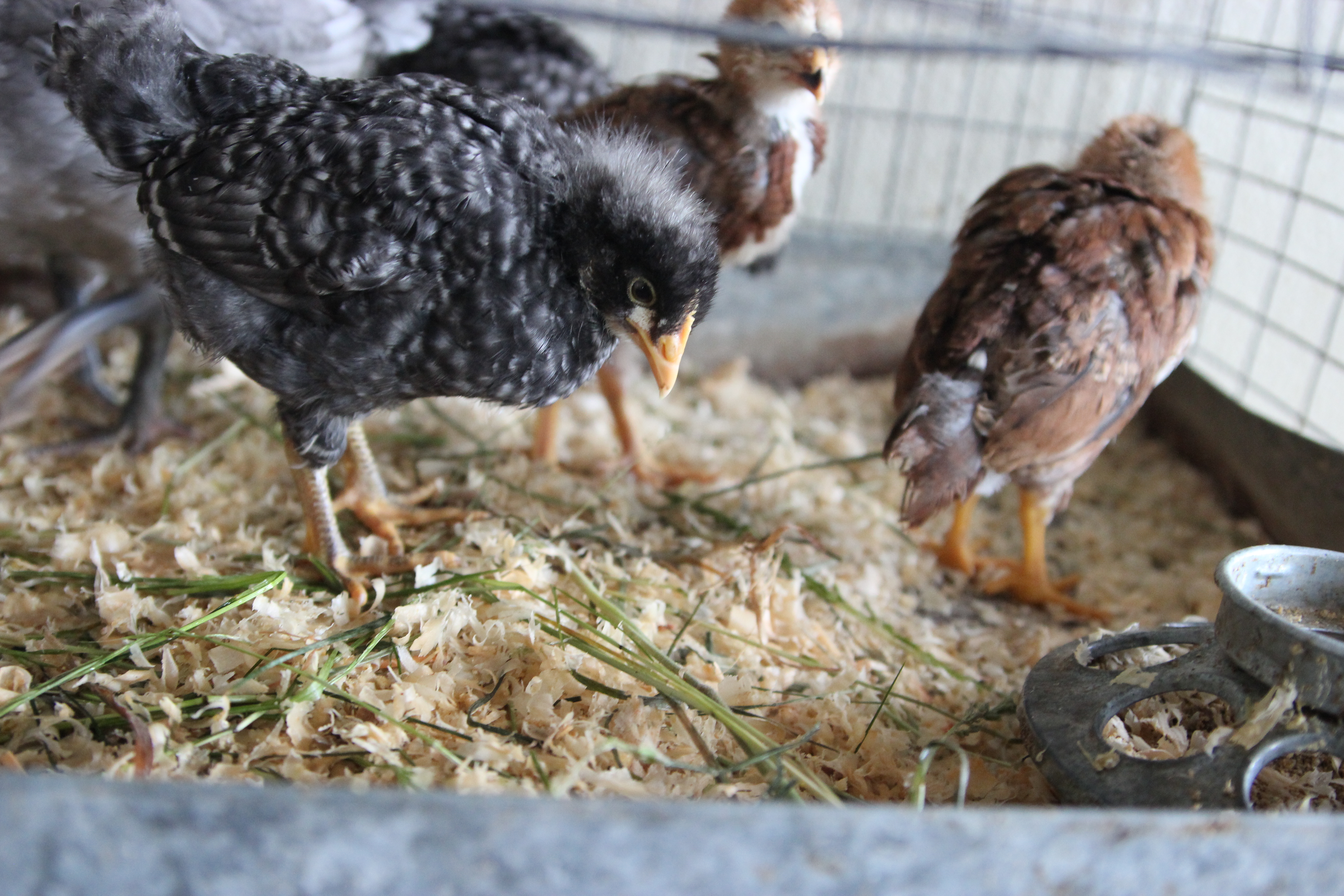
Chicks have a pecking order.
Chickens develop a natural pecking order, whereas ducks do not. Chicks will literally peck each other on the head in order to decide who would be highest on the food chain. The concern for us was that as we added a single duckling to a cage of chicks, that they would bully the duck. The opposite has became true! The duck is bigger than the chicks so they pretty much stay away. The duck does cuddle up with the chicks though, refusing to be left alone. That is until meal time, then the duckling will knock over anything in the way of the food or water.
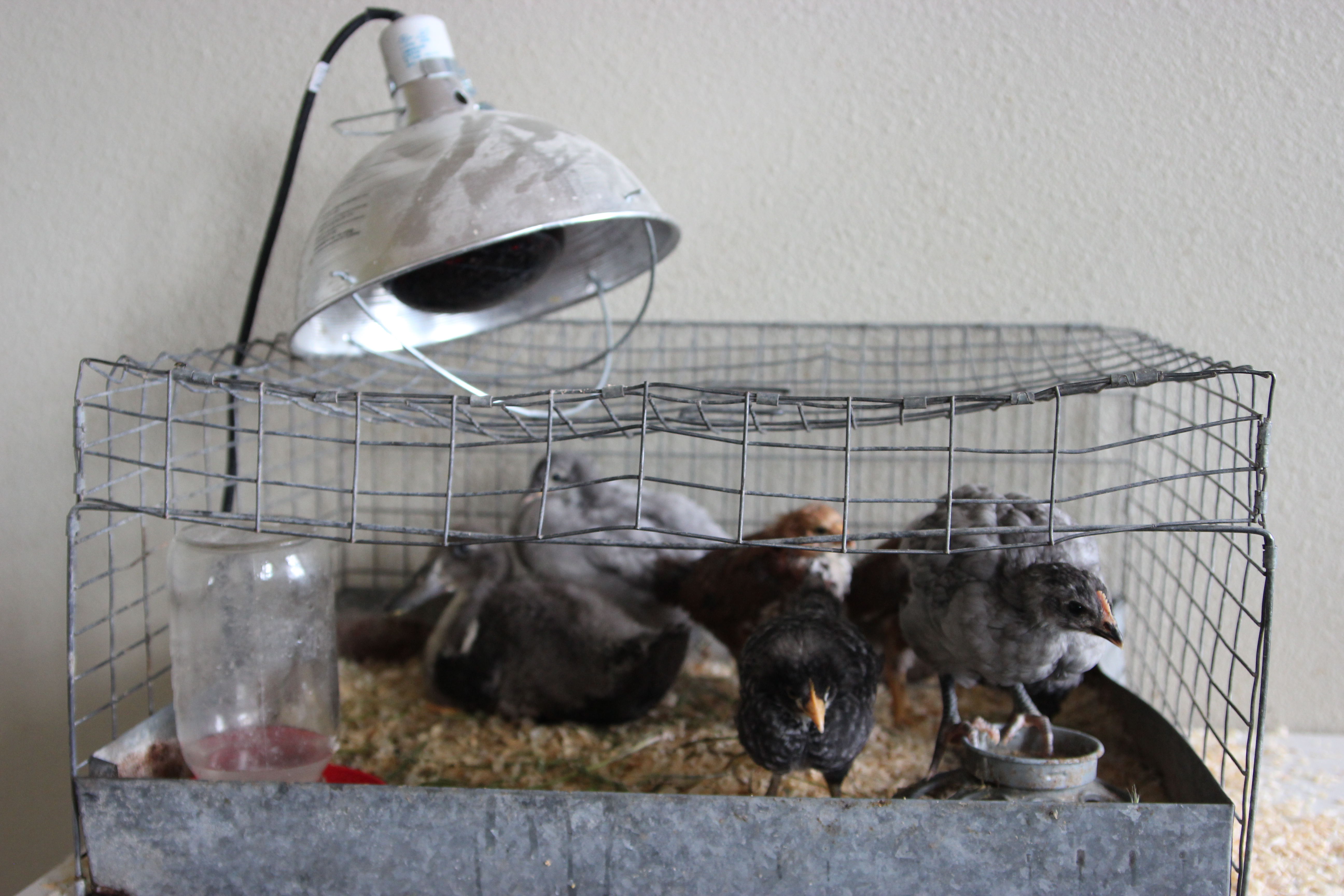
They both need a flock.
Neither ducks or chickens should be alone. They both feel safer in a group. When we do separate the duckling from the group, he or she lets us know that it is not ok by squeaking up a storm! Our plan is to introduce the chicks to our existing flock once they are old enough, but before then we will introduce our duck to our current ducks. Ducks are mostly grown by two months of age, so once our duckling outgrows our tiny chick cage, and is fully feathered he or she will go outside with the other ducks in the duck run.
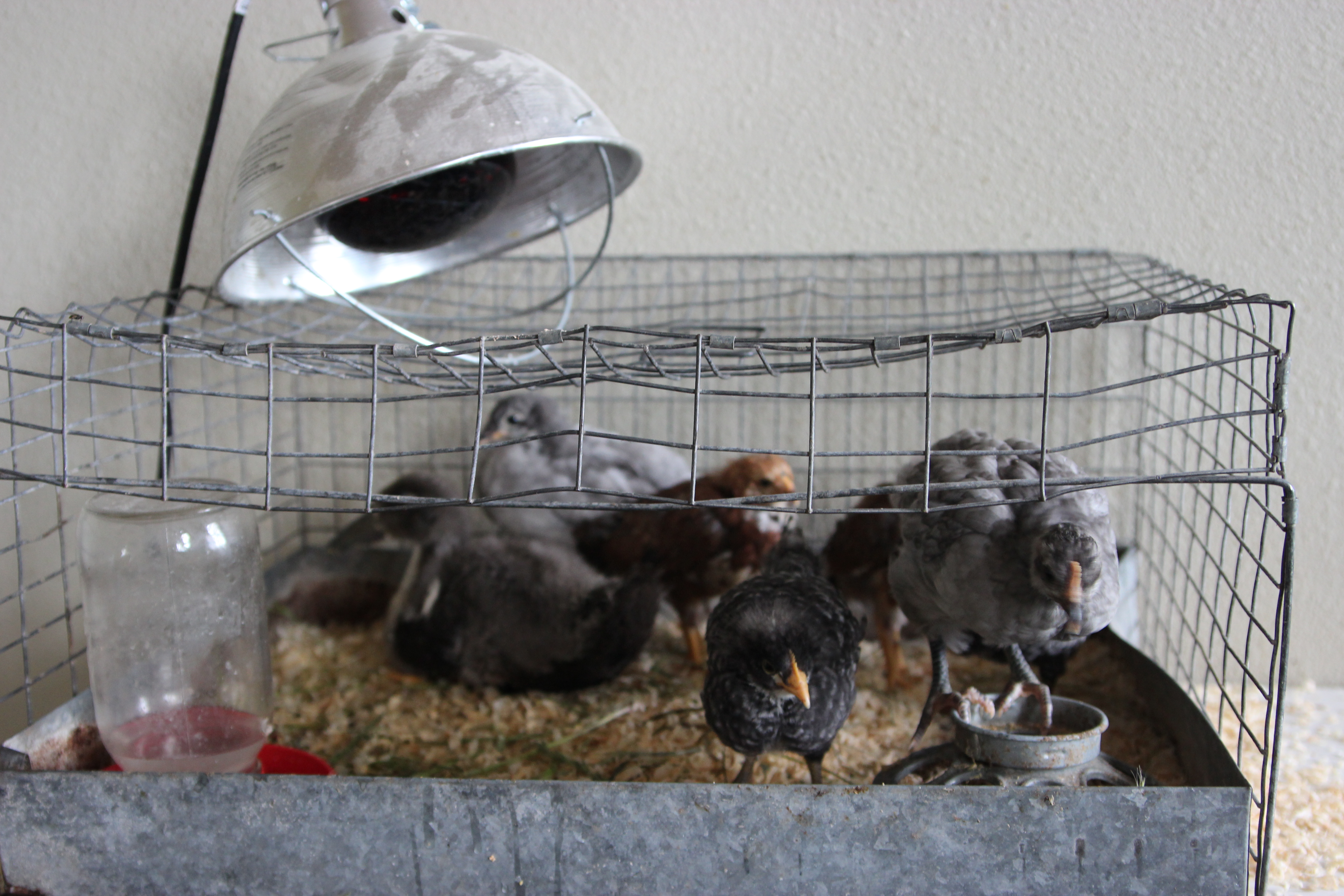
They both need heat.
Before chicks or ducklings are fully feathered, they both need heat. If they do not have a mother duck or chicken, then a heat lamp must be used. On warm days, we set our cage outside in the sun and let them forage through the bars. We mostly do this because they stink up the house very quickly. On colder days, and at night all of the little ones have a nice heat lamp to snuggle under.
As they grow, anyone can see that they need more room. That is the next project. . . .